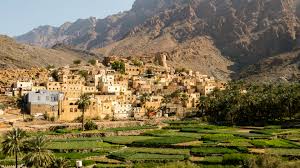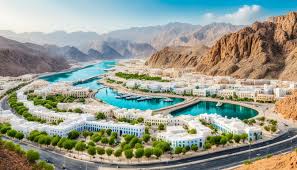Oman stands as a beacon of environmental responsibility in the Middle East, harmonizing its rich cultural heritage with a forward-thinking approach to ecological conservation. From its rugged mountains to its expansive deserts and pristine coastlines, the Sultanate has undertaken comprehensive measures to safeguard its natural resources and ensure a sustainable future for generations to come.
National Strategies for Environmental Protection
At the heart of Oman’s environmental initiatives lies a robust framework of national strategies and policies. The Sultanate has developed a National Strategy for Protecting the Environment, complemented by a National Biodiversity Strategy, to guide its conservation efforts. These strategies are supported by a series of laws and ministerial decisions that collectively form a cohesive approach to environmental stewardship.
The Environment Authority, established to oversee environmental protection, plays a pivotal role in implementing these strategies. Its mission is to protect the environment and conserve natural resources, ensuring high-quality services for the populace and achieving sustainable development.

Legal Framework for Environmental Conservation
Oman’s commitment to environmental protection is enshrined in its legal framework. The Law on Conservation of the Environment and Prevention of Pollution defines the environment and outlines measures to prevent pollution and conserve natural resources. This law mandates permits for activities that may impact the environment and sets stringent guidelines for the disposal of hazardous waste.
Further reinforcing this framework, Oman has enacted additional legislation to combat pollution, protect water resources, and preserve biodiversity. These laws ensure that environmental considerations are integrated into all sectors of development, promoting a balanced relationship between progress and preservation.
Biodiversity Conservation and Protected Areas
Oman boasts a rich tapestry of biodiversity, which it actively works to protect through the establishment of protected areas and reserves. The Qurm Nature Reserve in Muscat, for instance, safeguards one of the largest mangrove forests in the Gulf of Oman, providing a critical habitat for various marine and terrestrial species.
In recent developments, Oman has added two of its natural sites Al Jabal Al Akhdar and Sirrin Biosphere Reserves to the UNESCO World Network of Biosphere Reserves. This recognition underscores Oman’s dedication to conserving biodiversity and promoting sustainable development.
Marine Conservation and Coastal Protection
Given its extensive coastline along the Arabian Sea, Oman places significant emphasis on marine conservation. The Sultanate has initiated several projects to protect its marine ecosystems, including the establishment of artificial coral reefs to restore degraded areas and enhance fish populations.
Additionally, Oman conducts annual marine pollution monitoring along its 3,165-kilometer coastline, identifying pollutants such as hydrocarbons and heavy metals. This data-driven approach enables targeted interventions to mitigate pollution and preserve marine biodiversity.
Renewable Energy and Sustainable Development
Oman is transitioning towards renewable energy sources to reduce its carbon footprint and promote sustainable development. The country has invested in solar energy projects, including the establishment of large-scale solar power plants capable of powering thousands of homes and significantly reducing carbon dioxide emissions.
These initiatives align with Oman’s Vision 2040, which outlines a national blueprint for sustainable development, emphasizing the importance of renewable energy in achieving environmental and economic goals.

Community Engagement and Public Awareness
Recognizing that environmental conservation is a collective responsibility, Oman actively engages its citizens in sustainability efforts. The Environment Society of Oman, a non-profit organization, works to conserve the country’s natural environment through research, education, advocacy, and conservation.
Public awareness campaigns and educational programs aim to instill a sense of environmental stewardship among the populace, encouraging sustainable practices in daily life. These initiatives foster a culture of conservation and empower individuals to contribute to the protection of Oman’s natural heritage.
International Cooperation and Global Leadership
Oman’s commitment to environmental protection extends beyond its borders through active participation in international environmental agreements and collaborations. The Sultanate engages in regional and global efforts to address environmental challenges, sharing knowledge and resources to promote collective action.
In a notable achievement, Oman-based initiatives have been recognized internationally for innovative approaches to carbon capture and sustainability, contributing to global efforts to combat climate change.
Conclusion
Oman’s multifaceted approach to environmental protection exemplifies a harmonious blend of tradition and innovation. Through strategic planning, legal frameworks, biodiversity conservation, renewable energy initiatives, community engagement, and international cooperation, the Sultanate is paving the way for a sustainable future. Oman’s commitment to preserving its natural resources ensures that its ecological treasures remain intact for future generations to cherish and enjoy.
Do follow Gulf Magazine on Instagram.
Also Read – Empowering Futures: Exploring the Dynamic Omani Education System



